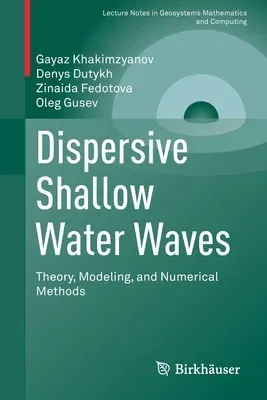This monograph presents cutting-edge research on dispersive wave
modelling, and the numerical methods used to simulate the propagation
and generation of long surface water waves. Including both an overview
of existing dispersive models, as well as recent breakthroughs, the
authors maintain an ideal balance between theory and applications. From
modelling tsunami waves to smaller scale coastal processes, this book
will be an indispensable resource for those looking to be brought
up-to-date in this active area of scientific research.
Beginning with an introduction to various dispersive long wave models on
the flat space, the authors establish a foundation on which readers can
confidently approach more advanced mathematical models and numerical
techniques. The first two chapters of the book cover modelling and
numerical simulation over globally flat spaces, including adaptive
moving grid methods along with the operator splitting approach, which
was historically proposed at the Institute of Computational Technologies
at Novosibirsk. Later chapters build on this to explore high-end
mathematical modelling of the fluid flow over deformed and rotating
spheres using the operator splitting approach. The appendices that
follow further elaborate by providing valuable insight into long wave
models based on the potential flow assumption, and modified intermediate
weakly nonlinear weakly dispersive equations.
Dispersive Shallow Water Waves will be a valuable resource for
researchers studying theoretical or applied oceanography, nonlinear
waves as well as those more broadly interested in free surface flow
dynamics.

